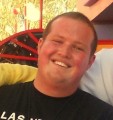It was a warm summer-night, the airplane of British Airways had just set foot in Canada and I was unnaturally excited. For the first time in my life, I was travelling on my own without the close environment of my family. I had had a snug, smooth childhood back in southern Germany, just graduated from High-School and felt ready for this step. Knowing that my visa, passport and the still wet tissue from the farewell were arranged in my pocket, I entered the crowded immigration area. Â Right after my passport had been stamped, I knew nothing could go wrong anymore. Montreal, here I come!
Enthusiastically, I opened the door and inhaled the muggy and spent air. A bead of sweat dropped into my mouth. Â Fatigue overcame me and I felt overwhelmed by the situation. So I called for a cab to bring me to the apartment that I had rented earlier.
Originally, I had intended to stay in Montreal for roughly two weeks. But plans were about to change. On the first day, I had an interview for a game-testing company and several minutes later, I had my first job. Â But I still had a week-end off to discover the city.
The City:
So, I went to the close-by Rue Saint-Catherine, which portrays the centre of Montreal in many ways. Geographically, it is pretty much in the middle of the city. It shelters big parts of the town’s skyline and provides most of the shopping places, plus all the nightlife is going on right here. But be aware that everything you read is in French!
With its 1.6 Million inhabitants, Montreal is often referred to as the European centre of North-America. First of all, the official language in Quebec is French, which really makes it unique compared to the other provinces in Canada. You can tell that, architecturally, the place is special. Besides the enormous and beautiful university of McGill and the numerous churches there are historically important buildings like the Sun Life Building. This one-of-a-kind edifice being finished in 1931 has been the tallest building in the British Empire for years. Also, it was a secret storage place for British securities during World War II and – most important for me – my working place during my stay.
But back to the city: In my time in Montreal (the name actually comes from the mountain “Mont Royal†located in the heart of the city) I have experienced a lot of exciting, beautiful and cultural things. There is a lot of stuff you have to see not only in the city itself, but also in the vast area surrounding Montreal. For starters there are a lot of nice museums, like the Museum for Contemporary Art or the Canadian Centre for Architecture.  You can go to the old city and see the harbour at the peaceful Saint-Laurent River, which I truly suggest you to do. Or just rent a bicycle at one of the countless “Bixiâ€-stations and explore the city while doing something for your health. If you own a car, you definitely have to inspect the “Circuit Gilles Villeneuve†which you can actually navigate on your own (mind the speed limit, you will still need money for other activities).
For Jazz-fans, the city is an absolute dreamland. If you happen to be here between June 29th and July 9th, don’t miss this extraordinary event with 650 concerts and over 2.5 million visitors. A revitalization of your rusted dancing skills may be a nice side-effect. For young people and friends of outdoor festivals, I can suggest you to attend the “Piknik Élektronikâ€, which in summer-time, takes place weekly on the Ile Notre-Dame. From there, you will have a gorgeous view on the skyline of Montreal.
While adventurers will love the big theme park “La Rondeâ€, which is located just next to the circuit, romantics will enjoy a quiet walk up the lovely Mont-Royal to experience the mind-blowing sunset. Afterwards, you will meet again in one of the multi-cultural restaurants, cafés or bars spread all over the place. There, you have to obey the tax and tip system (for me, as a European, it was a bit difficult in the beginning).  Prices you see on the menu do not include the taxes for the province of Quebec, plus the taxes for the state of Canada (an additional tip of 10%-20% on top of it all applies). Try ordering your food/café/cocktail in English, but it won’t always work.
The People:
As I said before, the city of Montreal is a big “melting potâ€. People from all over the world either live, work, pass through or plan to move here. This coheres with the soft immigration policies and the hence originating possibilities. It also gives reason to the fact that a game-testing company could come into existence, since they can locate so many different native tongues in only one place. Working together with mostly European people (French, Italian, German, Spanish, Austrian, Dutch, Swedish, Polish, Belgium), I got to know a lot of people and had an indubitably great time.
So you can see it is easy making friends with like-minded people. But what about the native people – the Québecois? Well, honestly, Quebec people are kind of special. For a fact, I should mention that I don’t speak a word of French, which would’ve actually helped me a lot. While a guy from France will tell you that people tend to speak a strange accent in Quebec, a resident will strongly deny that. In general, the people are nice, friendly and honest but when you first meet them, they sometimes seem cold and distant. One time, for instance, I had an accident with my bike. There were about five people around just curiously eyeing me for a second, and then deciding to get going again. But don’t get me wrong, once you get to know the people closer, you can literally feel the ice melting. So, learning French would be a great asset when you come to Montreal, since it is always helpful to speak the natives’ language.
The System:
Maybe I should lose another word about the French system itself: In the history of Canada there have been many attempts of Quebec trying to split up and form an independent state. In the 70s, language laws stating that everything had to be written down in French, were introduced. Stores that were once called “Atlantic†had to be renamed into “Atlantiqueâ€, “KFC†got the name “PFK†(Poulet Fried Kentucky) and discussions all over the province arose. Nowadays, the province is still torn apart considering that question. However, every citizen of Quebec is proud of his origin and his ancestors’ history.
The Surrounding Area:
And indeed they have things to be proud of. There are beautiful places just right out of town. For example, there is the Mont Saint-Hilaire accommodating a big park and offering eventful hikes on nice days. A few miles north of the city, you can view the Mont-Tremblant, which in winter-times is the biggest ski resort in the area. If you happen to be here in fall, you should – by all means – go to one of the apple-picking farms and admire all the different colors and the wonders of nature. Another must-see spot is the capital of the province – Quebec City. Heading about 2.5 hours north, along the Saint Laurent, you will see one of the oldest, cosiest towns of North America.
The Weather:
But be careful, most of these things are only advisable to do when the weather conditions are right. Whereas the summers in Montreal are quite warm (temperatures exceed 86°F) the winters are damn cold. With loads of snow, the temperatures are constantly below 0°F. Additionally, there is a really nasty wind trying to blow all the snow into your face. So I recommend you to plan your stay in the city between April and October and avoid the town in winter-times, unless you want to experience an adventure.
The same applied for me. I have been leaving Montreal in December, fleeing from the awful conditions. The money I earned from working helped me buy a car, which currently takes me through all of the United States. But I am already sure to come back to Montreal, when spring comes and life returns to the city with the many faces.

